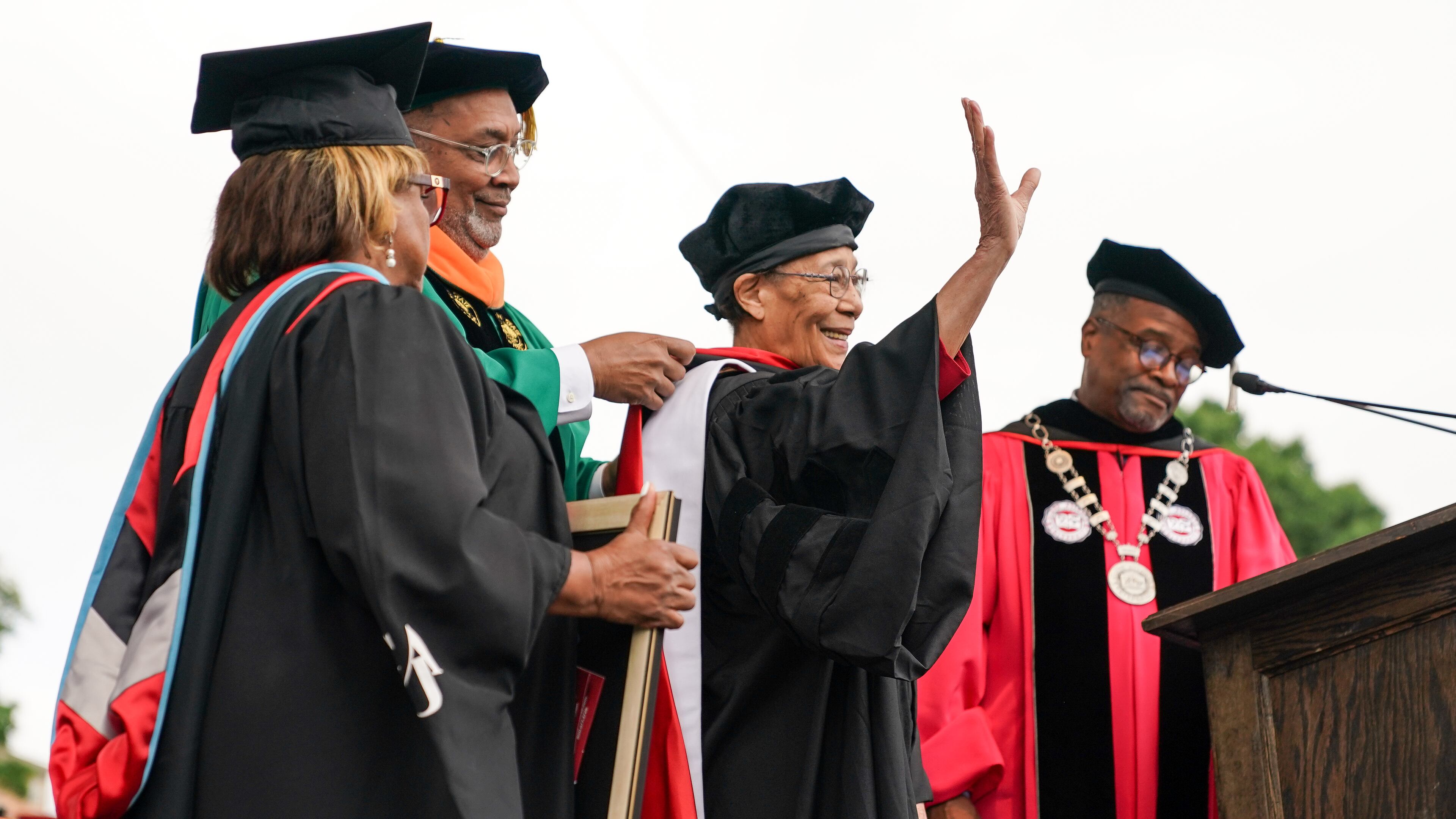OPINION: First Black UGA grad sees another way to be agent of change

It took more than 30 years for Mary Frances Early to be recognized for one of her most significant achievements. In 1962, Early became the first Black student to graduate from the University of Georgia.
Her accomplishment was overlooked or footnoted by the media and the University until 1997, when Maurice Daniels, dean emeritus and professor emeritus at UGA’s School of Social Work, interviewed Early while researching individuals involved in the U.S. Supreme Court victory that led to the desegregation of UGA.
A few weeks ago, I received an email from Early. It got my attention because the print was very large.
She didn’t begin the email by telling me who she was, though that, too, would have grabbed my attention.
“I am planning a project to help bring public awareness to AMD (age-related macular degeneration),” she wrote. “I have had this condition for 10 years and it has wreaked havoc on me and millions of others who suffer similarly.” Only after that did the 86-year-old mention that she was the first Black graduate of UGA.
Early’s accomplishment had been largely overlooked in 1962 except in the Black press. When an annual UGA lecture series was renamed in her honor in 2000, Early’s story began making headlines. In 2020, UGA officials named the College of Education after Early. In 2021, Early released an autobiography, “The Quiet Trailblazer: My Journey as the First Black Graduate of the University of Georgia.”
Early retired as a music teacher from Atlanta Public Schools in 1994 and later worked at what is now known as Clark Atlanta University. When I reached her by phone at her Decatur home, she told me she felt vindicated. She never wanted accolades. She just wanted the historical record to be accurate.
These days, she speaks at UGA and other events and told me she was preparing for one such engagement this week.
It takes time for her to organize her thoughts and remember everything she wants to say since AMD prevents her from using notes.
Early hadn’t talked much in the press about her debilitating condition. She said that although she is a quiet person, she wants to use her platform once again to put the focus on something greater than her personal achievements.
While AMD can impact people as young as 50 years of age, approximately 3 in 10 Americans age 80 and older have early AMD. And an estimated 1 and 10 in that age group have the vision-threatening late form of AMD, according to data from Prevent Blindness, an organization that spearheads legislation to prevent blindness.
Early shared with me some of the challenges she faces with AMD.
When she goes to the doctor’s office, she can’t complete the sign-in sheet because the spaces are too close together and the lines aren’t dark enough. “I have to give up my privacy and allow someone else to do it and that hurts my pride,” Early said.
There are ways around texting with a cellphone, but it’s tough for people her age to master them, she said.
A portable reader offers some help for reading menus at restaurants or labels at the grocery store, but facial recognition requires a $4,000 device that attaches onto the side of her glasses.
One of the most difficult challenges is that she, a lifelong learner, author and educator for whom an entire school of education is named, can no longer read.
“I miss books. I like the smell of books,” she said. Despite having a full-page magnifier, reading with it is hard when the pages are not completely flat. Instead, she listens to audiobooks.
Early has relied on a network of friends and family as well as the Center for the Visually Impaired to help her continue to live independently, but she wants to see some of the barriers removed for visually impaired people.
“We need someone to monitor Americans with Disabilities Act for compliance and see if companies are living up to their pledge,” she said. “Even though people are impaired they are still human beings who need to be able to live with dignity and purpose.”
Navigating ADA is complex, with at least a half-dozen federal agencies playing a role in investigation and enforcement. The burden falls on individuals with disabilities to file a complaint through the Department of Justice, using lawsuits and settlements to ensure people with disabilities have access and inclusion. However, any law that depends on extensive legal wrangling for enforcement naturally carries inequities.
For Early, a civil rights pioneer, this is incentive to push again for change that may go unrecognized but is no less effective in creating a more equitable society.
Her efforts should also inspire the rest of us to be agents of change, even when no one is watching.
Read more on the Real Life blog (www.ajc.com/opinion/real-life-blog/) and find Nedra on Facebook (www.facebook.com/AJCRealLifeColumn) and Twitter (@nrhoneajc) or email her at nedra.rhone@ajc.com.l


